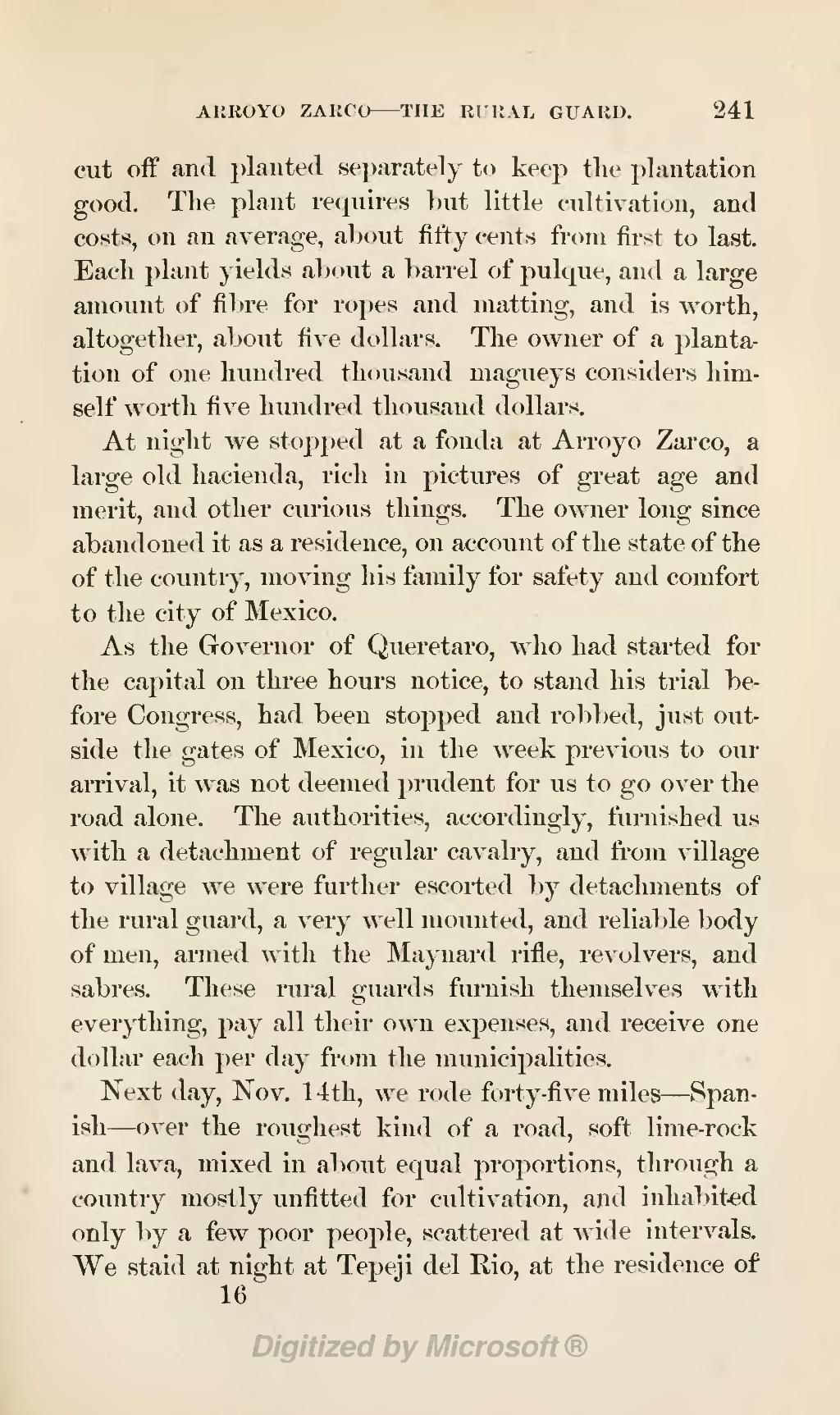cut off and planted separately to keep the plantation good. The plant requires but little cultivation, and costs, on an average, about fifty cents from first to last. Each plant yields about a barrel of pulque, and a large amount of fibre for ropes and matting, and is worth, altogether, about five dollars. The owner of a plantation of one hundred thousand magueys considers himself worth five hundred thousand dollars.
At night we stopped at a fonda at Arroyo Zarco, a large old hacienda, rich in pictures of great age and merit, and other curious things. The owner long since abandoned it as a residence, on account of the state of the of the country, moving his family for safety and comfort to the city of Mexico.
As the Governor of Queretaro, who had started for the capital on three hours notice, to stand his trial before Congress, had been stopped and robbed, just outside the gates of Mexico, in the week previous to our arrival, it was not deemed prudent for us to go over the road alone. The authorities, accordingly, furnished us with a detachment of regular cavalry, and from village to village we were further escorted by detachments of the rural guard, a very well mounted, and reliable body of men, armed with the Maynard rifle, revolvers, and sabres. These rural guards furnish themselves with everything, pay all their own expenses, and receive one dollar each per day from the municipalities.
Next day, Nov. 14th, we rode forty-five miles—Spanish—over the roughest kind of a road, soft lime-rock and lava, mixed in about equal proportions, through a country mostly unfitted for cultivation, and inhabited only by a few poor people, scattered at wide intervals. We staid at night at Tepeji del Rio, at the residence of

